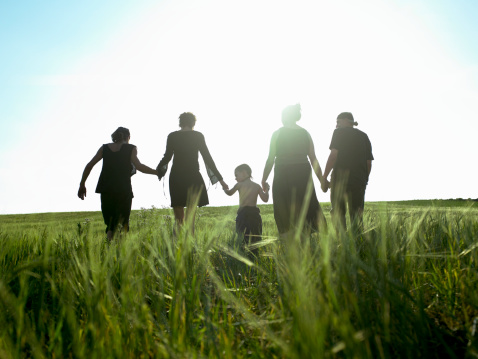
People often say that children don’t come with a manual, but it seems that how to raise a child is blindingly obvious to an entire class of people: those who don’t have children.
I remember being a counselor at a camp and thinking I knew all the mistakes that the parents of my young charges were making. I assumed it was clear and crisply evident how to raise a child. Now as the father of a 19-year-old daughter, I am all smiles and forgiveness for parents.
A few years ago, driving my daughter to school, I said: “Samara, you know how sometimes your father says something that is actually important and worth remembering?” She looked at me and replied: “Not as often as he thinks.”
Mike Tyson once said that everyone has a plan until they get punched in the face. With some obvious differences, the same is true of parenting plans. When I speak to new couples, they imagine they might know how they will raise their children, who they think will be pliant, obedient and grateful. Having learned the futility of complicating that picture, I simply remember my own assumptions and wish them well.
I’m often reminded of the wisdom of comedian Martin Mull, who explained that having children was like having a bowling alley installed in your brain. These days, a more apt bowling metaphor would be to Robert Putnam’s 2000 book Bowling Alone, in which he studied the decline in social groups.
Technology can connect us, but it can also diminish community. Though there have been criticisms of Putnam’s work, all of us can see the degree to which associations like houses of worship and other clubs have declined. A lot of people are raising their kids behind closed doors, separate from other families and connections. This means that the great enterprise of raising children happens less in “village” settings and more by dint of expertise gained through books and the Internet.
But the sharing of stories and human empathy and interaction are not replaceable in this greatest of all human endeavors of raising another generation of people. Conversations online are invariably less nuanced, spontaneous and ratified—you can follow innumerable threads face-to-face, but in writing there has to be coherence and discipline. And a great deal gets lost.
Like many children from an earlier generation, the people in the community who raised me knew me. They knew my family and my siblings. Yes, having other adults tell me what to do was irritating and intrusive. But it was also enveloping, reminding me how much I shared with everyone else, and that my journey was not only my own.
Many things are better about the way we parent now than in the past. Some staples of parenting, like swatting kids when they misbehave, are falling deservedly into the dustbin of poor practice. Nutrition, medicine and in many cases, education has much advanced over the past 50 years, for which we should be grateful.
But when parents and children feel that they are in this alone, everyone loses. When parents feel isolated, and Americans in general report feeling lonely, our children suffer.
So my advice to those who are planning to have children is to create a network. It is more complicated than you can imagine. Bring others into your life—in the playground, the school and the synagogue. Take it from those who have been there—don’t do it alone.
More Must-Reads from TIME
- Cybersecurity Experts Are Sounding the Alarm on DOGE
- Meet the 2025 Women of the Year
- The Harsh Truth About Disability Inclusion
- Why Do More Young Adults Have Cancer?
- Colman Domingo Leads With Radical Love
- How to Get Better at Doing Things Alone
- Michelle Zauner Stares Down the Darkness
Contact us at letters@time.com